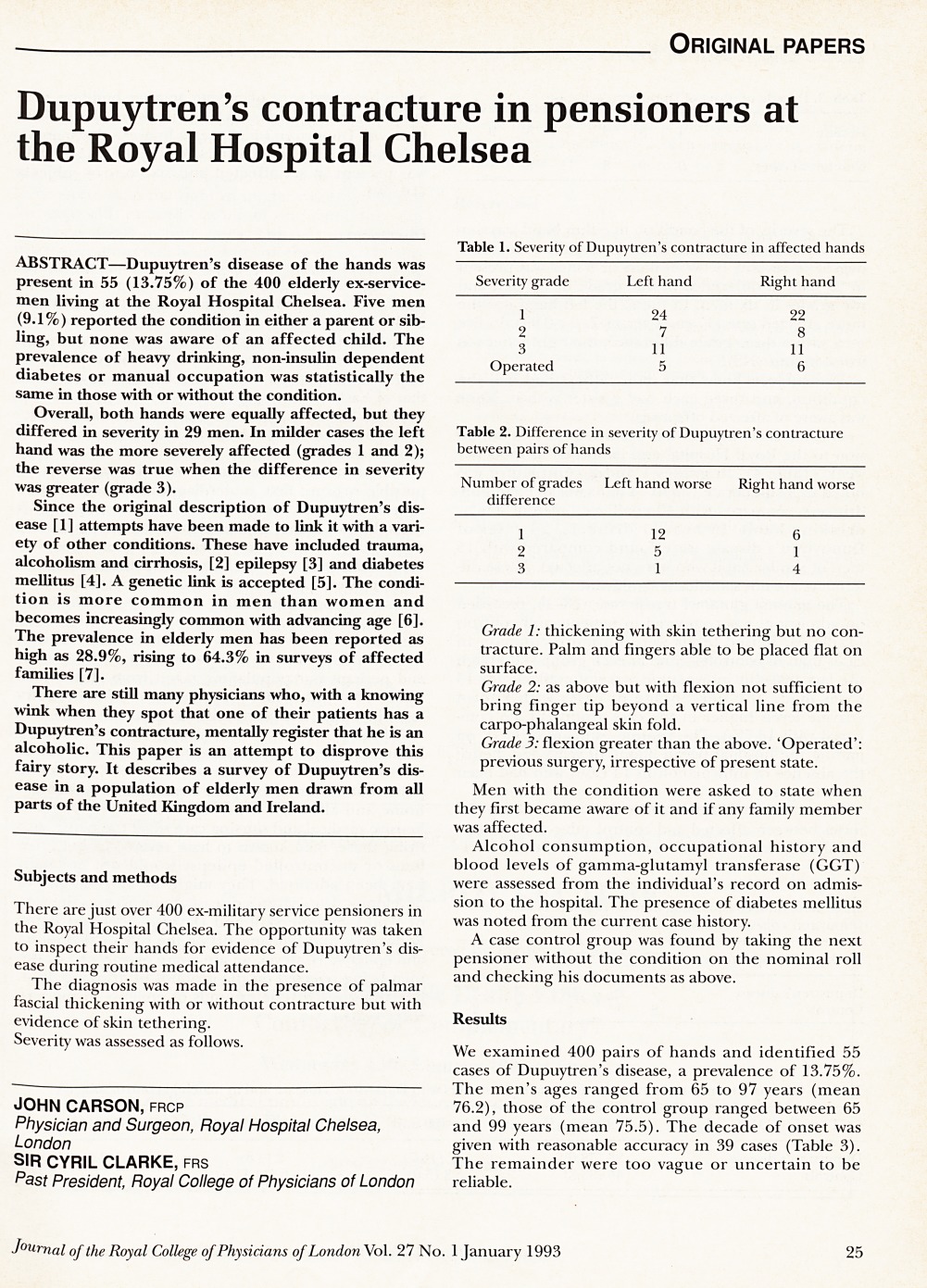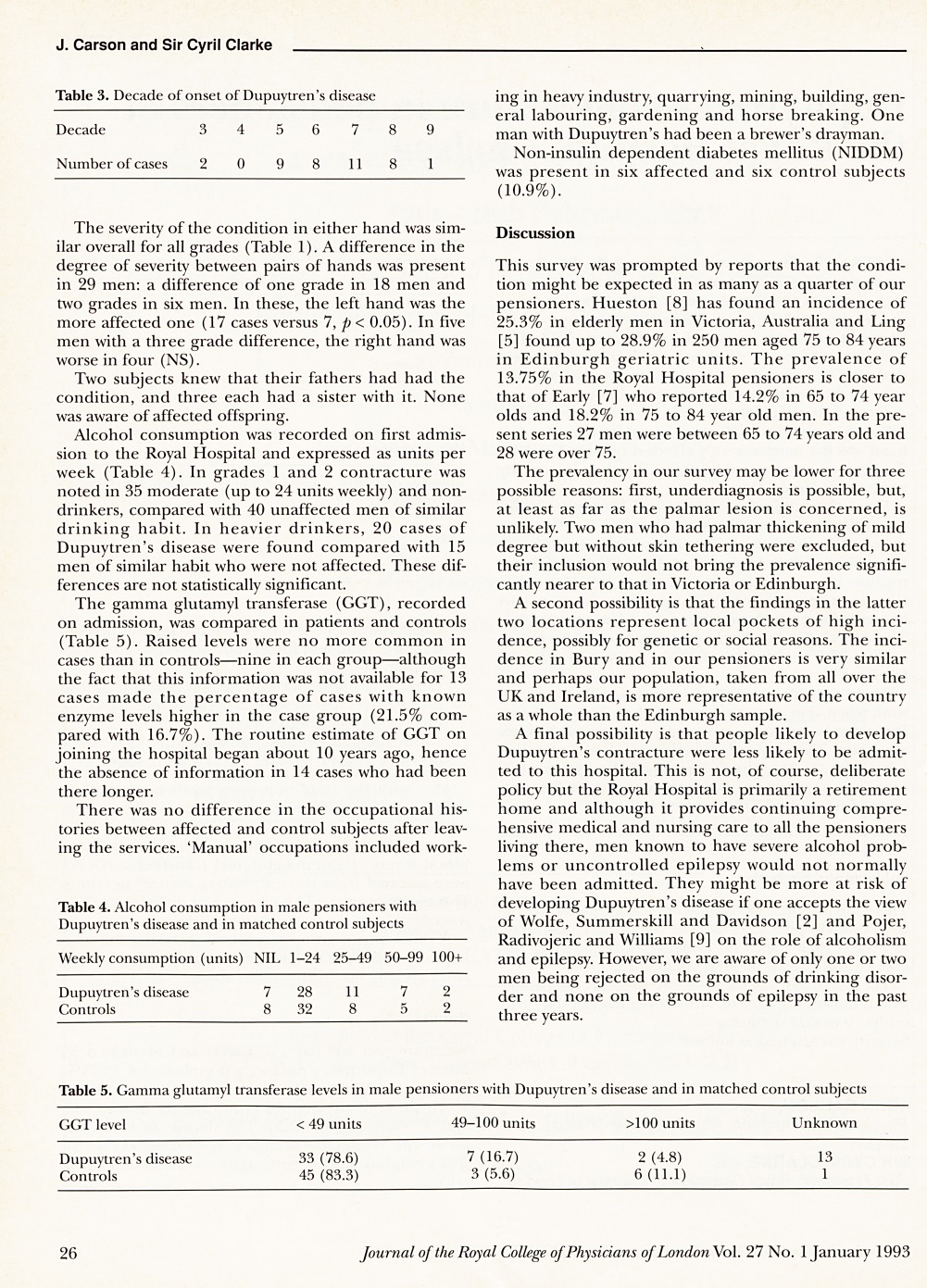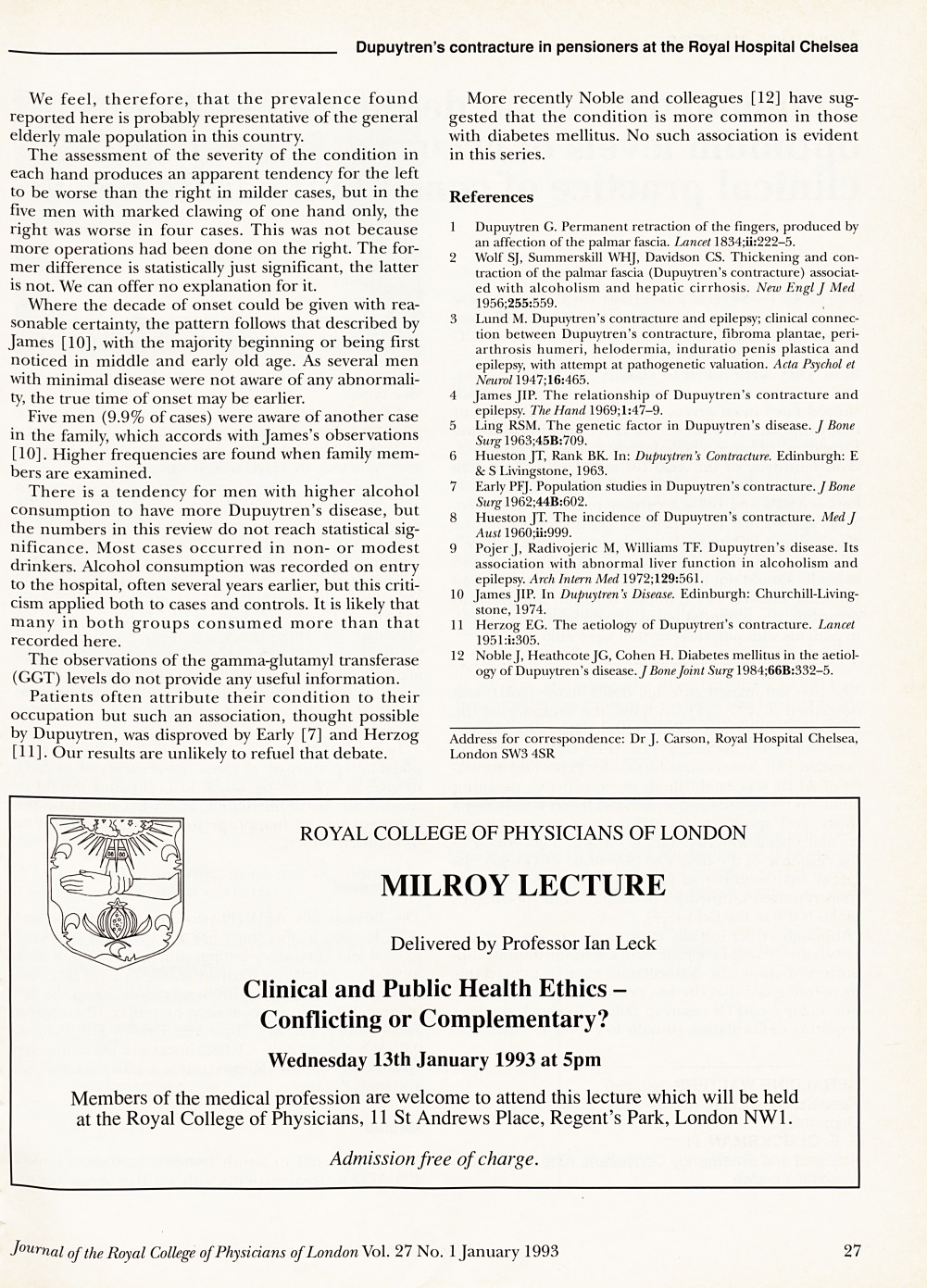Abstract
Dupuytren's disease of the hands was present in 55 (13.75%) of the 400 elderly ex-servicemen living at the Royal Hospital Chelsea. Five men (9.1%) reported the condition in either a parent or sibling, but none was aware of an affected child. The prevalence of heavy drinking, non-insulin dependent diabetes or manual occupation was statistically the same in those with or without the condition.
Overall, both hands were equally affected, but they differed in severity in 29 men. In milder cases the left hand was the more severely affected (grades 1 and 2); the reverse was true when the difference in severity was greater (grade 3).
Since the original description of Dupuytren's disease [1] attempts have been made to link it with a variety of other conditions. These have included trauma, alcoholism and cirrhosis, [2] epilepsy [3] and diabetes mellitus [4]. A genetic link is accepted [5]. The condition is more common in men than women and becomes increasingly common with advancing age [6]. The prevalence in elderly men has been reported as high as 28.9%, rising to 64.3% in surveys of affected families [7].
There are still many physicians who, with a knowing wink when they spot that one of their patients has a Dupuytren's contracture, mentally register that he is an alcoholic. This paper is an attempt to disprove this fairy story. It describes a survey of Dupuytren's disease in a population of elderly men drawn from all parts of the United Kingdom and Ireland.
Full text
PDF


Contributor Information
John Carson, Physician and Surgeon, Royal Hospital Chelsea, London.
Sir Cyril Clarke, Past President, Royal College of Physicians of London.


